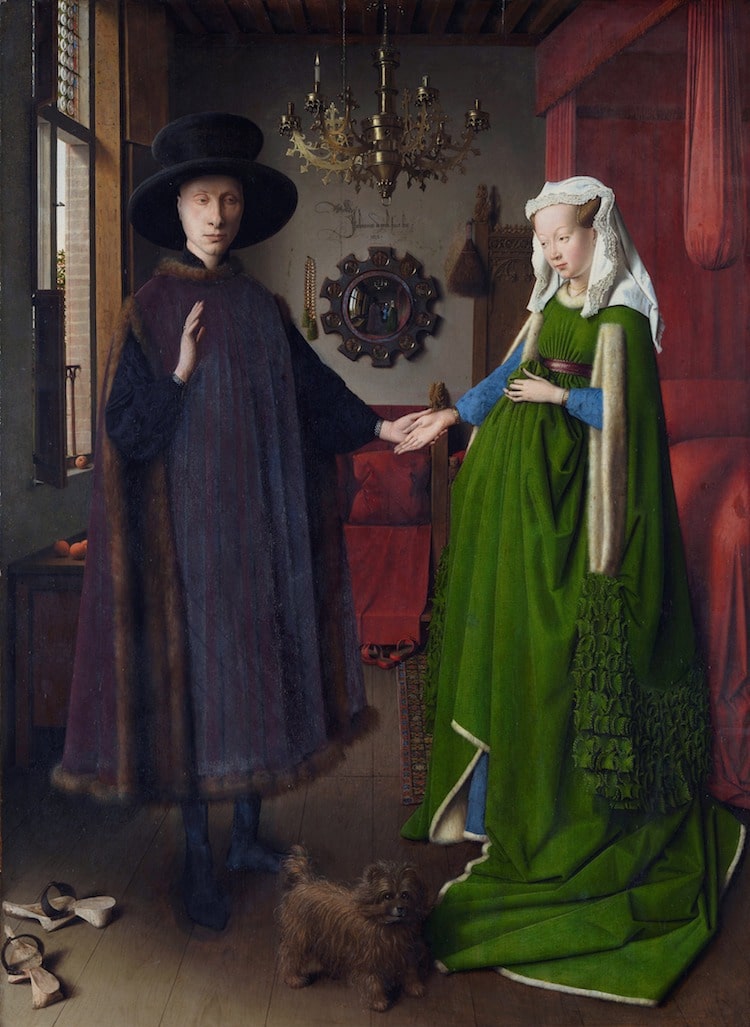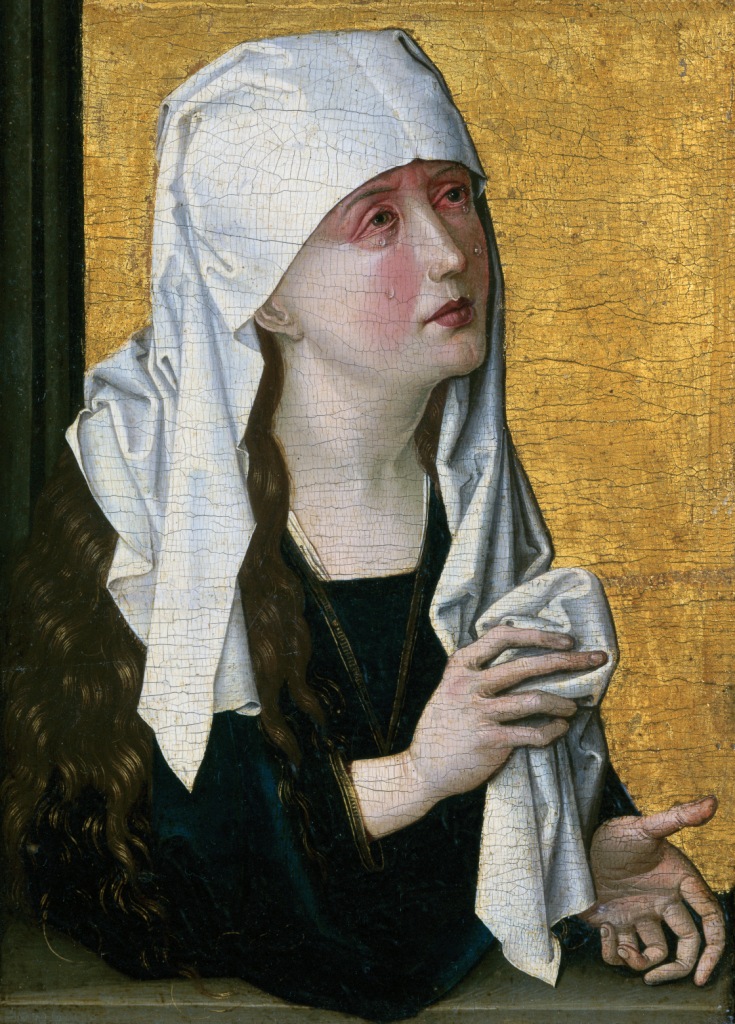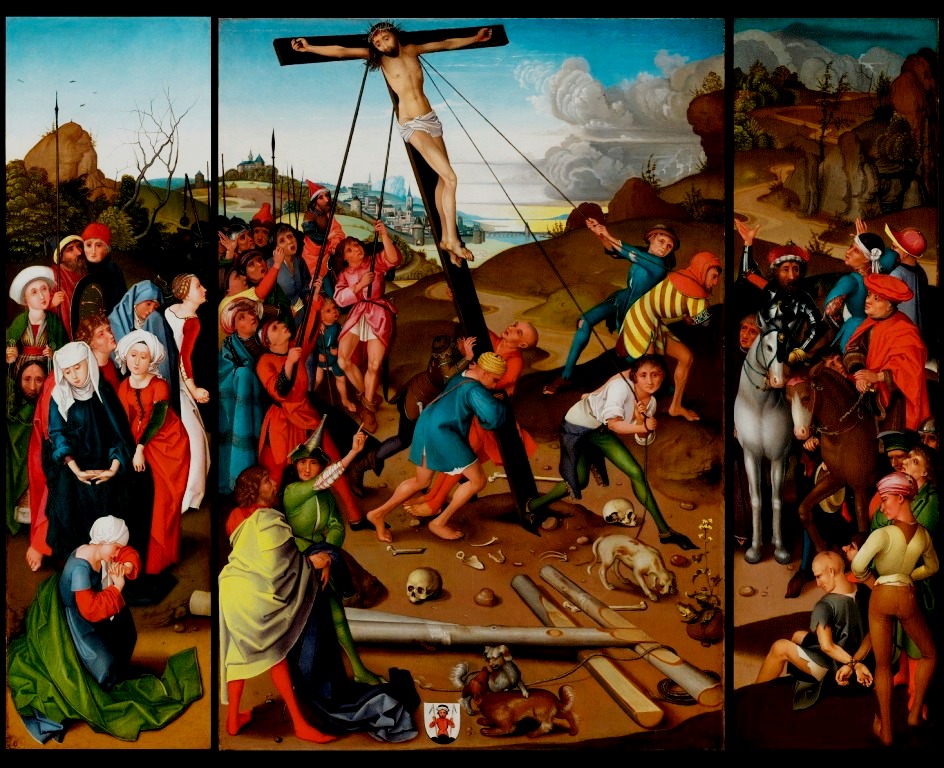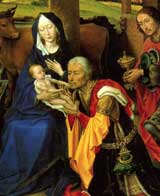Northern Renaissance Art. Northern Renaissance Art evolved simultaneously but independently from its. There are many subdivisions of the movement that were inspired by artists commissioned to come to these areas from Italy and through learning centers and printed books.

Artists began to make individual prints, and series of prints for the mass market, leading to aesthetic independence of subject matter and style. Jan van Eyck: Considered the first master of the Northern Renaissance, van Eyck upended notions of color, perspective, texture, and symbolism in works like The Arnolfini Portrait, Virgin and Child with Canon van der Paele, The Annunciation, and the Ghent Altarpiece. While their Italian counterparts were more concerned with linear perspective and classical ideals of form and proportion, these painters excelled at empirical perspective and minute realistic detail.
Like any significant art movement, in the north, Renaissance art was the product of the. There are many subdivisions of the movement that were inspired by artists commissioned to come to these areas from Italy and through learning centers and printed books. Art lovers today may be enamored by the assumed supremacy of Italian Renaissance painters such as Leonardo da Vinci, Raphael, and Michelangelo.
Northern Renaissance in the Netherlands and Germany. Picturing Women in Late Medieval and Renaissance Art by Christa Grossinger This extensively illustrated book discusses the representation of women in the art of the late Middle Ages in Northern Europe. Northern Renaissance artists concentrated on the surface detail; whereas, Italian Renaissance artist concentrated on linear perspective, symmetrical balance and a good sense of mass.
The artworks of the Italian Renaissance and the Northern European Renaissance were very different in style, subject matter, and visual sensibility.
These techniques include linear perspective, natural observation, and realistic figures.
The Southern Part of Europe during the Renaissance is more focused on the improvement of different fields of science including literature, architecture, politics, and religion. At the center of the worldview of the artists and sculptors was the deification of nature and the universe, the recognition of man as a small part of this infinity. The Cultural Backdrop to the Northern Renaissance.
The Northern Renaissance is a period in which artists north of the Alps—namely, in the Low Countries (the Netherlands and Belgium), Germany, France, and England— adopted and adapted the ideas of the Italian Renaissance. The Southern Part of Europe during the Renaissance is more focused on the improvement of different fields of science including literature, architecture, politics, and religion. She is also the founder and director of the Courtauld Institute Summer School programme and has published widely on northern Renaissance art, including most recently a study of the famous Well of.
Picturing Women in Late Medieval and Renaissance Art by Christa Grossinger This extensively illustrated book discusses the representation of women in the art of the late Middle Ages in Northern Europe. Drawing on a wide range of different media, but making particular use of the rich plethora of woodcuts, the author charts how the images of women hanged during the period and proposes two basic. Northern Renaissance How Humanism beats down Feudalism with the printing press.
Art lovers today may be enamored by the assumed supremacy of Italian Renaissance painters such as Leonardo da Vinci, Raphael, and Michelangelo. The title 'Northern Renaissance' is often applied to describe this place and time in art history. Picturing Women in Late Medieval and Renaissance Art by Christa Grossinger This extensively illustrated book discusses the representation of women in the art of the late Middle Ages in Northern Europe.
The Northern Renaissance refers to the Renaissance outside of Italy but within Europe. Northern Renaissance How Humanism beats down Feudalism with the printing press. Typically the main centre's for art included the Netherlands, Germany and France and all of these countries have become known by the collective name of Northern (North of Italy).
Artists began to make individual prints, and series of prints for the mass market, leading to aesthetic independence of subject matter and style.
Most of the visual art activity in the Northern Renaissance occurred in the "low countries" of Holland, Flanders, and Germany.
The subject matters were also different. The Northern Renaissance artists were masters of observation and technique. She is also the founder and director of the Courtauld Institute Summer School programme and has published widely on northern Renaissance art, including most recently a study of the famous Well of.
Printmaking was an important and popular medium during the Northern Renaissance because, artists were able to sell many copies of their prints which were then seen throughout Europe. The title 'Northern Renaissance' is often applied to describe this place and time in art history. The subject matters were also different.
While their Italian counterparts were more concerned with linear perspective and classical ideals of form and proportion, these painters excelled at empirical perspective and minute realistic detail. Like any significant art movement, in the north, Renaissance art was the product of the. Drawing on a wide range of different media, but making particular use of the rich plethora of woodcuts, the author charts how the images of women hanged during the period and proposes two basic.
Northern Renaissance art developed on the Italian Renaissance styles. The Function of Armor in Medieval and Renaissance Europe. Jan van Eyck: Considered the first master of the Northern Renaissance, van Eyck upended notions of color, perspective, texture, and symbolism in works like The Arnolfini Portrait, Virgin and Child with Canon van der Paele, The Annunciation, and the Ghent Altarpiece.
Called the Northern Renaissance because it occurred north of the Italian Renaissance, this period became the German, French, English, Low Countries, Polish Renaissances and in turn other national and localized movements, each with. The Northern Renaissance is a period in which artists north of the Alps—namely, in the Low Countries (the Netherlands and Belgium), Germany, France, and England— adopted and adapted the ideas of the Italian Renaissance. The Cultural Backdrop to the Northern Renaissance.
When did the Northern Renaissance start?
She is also the founder and director of the Courtauld Institute Summer School programme and has published widely on northern Renaissance art, including most recently a study of the famous Well of.
The Northern Renaissance was the Renaissance that occurred in Europe north of the Alps. Intentional Alterations of Early Netherlandish Painting. There are many subdivisions of the movement that were inspired by artists commissioned to come to these areas from Italy and through learning centers and printed books.
Printmaking was an important and popular medium during the Northern Renaissance because, artists were able to sell many copies of their prints which were then seen throughout Europe. Jan van Eyck: Considered the first master of the Northern Renaissance, van Eyck upended notions of color, perspective, texture, and symbolism in works like The Arnolfini Portrait, Virgin and Child with Canon van der Paele, The Annunciation, and the Ghent Altarpiece. Previous styles of religious artwork had placed God in the Heavens or were singular figures.
Art lovers today may be enamored by the assumed supremacy of Italian Renaissance painters such as Leonardo da Vinci, Raphael, and Michelangelo. Intentional Alterations of Early Netherlandish Painting. The Northern Renaissance refers to the Renaissance outside of Italy but within Europe.
Northern Renaissance in the Netherlands and Germany.
The Northern Renaissance is a period in which artists north of the Alps—namely, in the Low Countries (the Netherlands and Belgium), Germany, France, and England— adopted and adapted the ideas of the Italian Renaissance.
At the center of the worldview of the artists and sculptors was the deification of nature and the universe, the recognition of man as a small part of this infinity. Until the sixteenth century, the Burgundian Netherlands could have easily been considered the cultural nucleus of Europe. The subject matters were also different.
The subject matters were also different. However, because art historians share a general understanding of what it means, "Northern Renaissance" is a convenient shorthand for the flowering of Northern art that. As other artists from Germany, Switzerland, Austria, and the Low Countries began to incorporate these influences.
Humanism influenced the Renaissance periods in Germany, France, England, the Netherlands, and Poland. There were also other national and localized movements, each with different. The Function of Armor in Medieval and Renaissance Europe.
Printmaking was an important and popular medium during the Northern Renaissance because, artists were able to sell many copies of their prints which were then seen throughout Europe. Previous styles of religious artwork had placed God in the Heavens or were singular figures. Like any significant art movement, in the north, Renaissance art was the product of the.











/GettyImages-915648246-5bbe5bddc9e77c0051747ad1.jpg)







